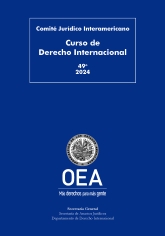Views
CJEU in Albausy on (in)admissibility of questions for a preliminary ruling under Succession Regulation

In a recent ruling, the CJEU adds another layer to the ongoing discussion on which national authorities can submit questions for preliminary rulings under the Succession Regulation, and its nuanced interpretation of what constitutes a ‘court.’
Albausy (Case C-187/23, ECLI:EU:C:2025:34, January 25, 2025) evolves around the question of competence to submit a request for preliminary ruling under the Succession Regulation (Regulation 650/2012 on matters of succession and the creation of a European Certificate of Succession).
Although the CJEU finds that the request in that case is inadmissible, the decision is noteworthy because it confirms the system of the Succession Regulation. Within the regulation, the competence to submit questions for preliminary ruling is reserved for national courts that act as judicial bodies and are seized with a claim over which they have jurisdiction based on Succession Regulation’s rules on jurisdiction.
The opinion of Advocate General Campos Sánchez-Bordona is available here.
A Judgment is a Judgment? How (and Where) to Enforce Third-State Judgments in the EU After Brexit
In the wake of the CJEU’s controversial judgment in H Limited (Case C-568/22), which appeared to open a wide backdoor into the European Area of Justice through an English enforcement judgments (surprisingly considered a ‘judgment’ in the sense of Art. 2(a), 39 Brussels Ia by the Court), international law firms had been quick to celebrate the creation of ‘a new enforcement mechanism‘ for non-EU judgments.
As the UK had already completed its withdrawal from the European Union when the decision was rendered, the specific mechanism that the Court seemed to have sanctioned was, of course, short-lived. But crafty judgment creditors may quickly have started to look elsewhere.
In a paper that has just been published in a special issue of the Journal of Private International Law dedicated to the work of Trevor Hartley, I try to identify the jurisdictions to which they might look. Read more
Conference report ‘European Account Preservation Order: Practical Challenges and Prospects for Reform’ (University of Luxembourg, 3 December 2024)
This report was written by Carlos Santaló Goris, postdoctoral researcher at the University of Luxembourg
Recent developments on the application of the EAPO Regulation
On 3 December 2024, the conference ‘European Account Preservation Order: Practical Challenges and Prospects for Reform’ took place at the University of Luxembourg, organized by Prof. Gilles Cuniberti (University of Luxembourg). The conference also served as an occasion to present the book ‘European Account Preservation Order – A Multi-jurisdictional Guide with Commentary’, published by Bruylant/Larcier. The book was co-edited by Dr. Nicolas Kyriakides (University of Nicosia), Dr. Heikki A. Huhtamäki (Huhtamäki Brothers Attorneys Ltd), and Dr. Nicholas Mouttotos (University of Bremen), and offers a comprehensive overview on the application of the European Account Preservation Order (‘EAPO’) at the national level. It contains a report for each Member State where the EAPO Regulation applies, addressing specific aspects of the EAPO procedure that depend on domestic law.
The conference was structured into two panel discussions. The first panel focused on the specific issues regarding the application of the EAPO Regulation identified by practitioners with first-hand experience with this instrument. The second panel discussion explored the potential reform of the EAPO Regulation and which specific changes should be implemented to improve its application. This report aims to offer an overview of the main highlights and outputs of the presentations and discussions of the conference. Read more
News
Praxis des Internationalen Privat- und Verfahrensrechts (IPRax) 4/2025: Abstracts
The latest issue of the „Praxis des Internationalen Privat- und Verfahrensrechts“ (IPRax) features the following articles:
Judgment of the Hellenic Supreme Court Part 2: Relatives’ rights to compensation for emotional distress in fatal car accidents under the Rome II Regulation
Following a judgment by the Supreme Court of Greece in 2023, the issue of direct damages was once again brought before Areios Pagos. In a decision that diverged from the ruling of the Court of Justice of the European Union (CJEU) in the Lazar case, the Supreme Court reaffirmed its position. However, one member of the court expressed a dissenting opinion, emphasizing the obligation of national courts to submit a preliminary reference. This judge provided rationale for the Supreme Court’s departure from established case law, highlighting the importance of adhering to the CJEU’s precedents in the context of European legal integration.
Out Now: The 50th anniversary of the first Inter-American specialized conference on private international law. The future of private international law in the Americas by Dante Mauricio Negro Alvarado

The Department of International Law (Secretariat for Legal Affairs) of the Organization of American States (OAS) has just published in essay form the lectures delivered during the 49th Course on International Law, which was held on 5 -16 August 2024. For more information, click here.
The book features the following piece: The 50th anniversary of the first Inter-American specialized conference on private international law. The future of private international law in the Americas by Dante Mauricio Negro Alvarado (in English, p. 295-335). This is a must-read for Private International Law academics and lawyers from the region and beyond. Read more



